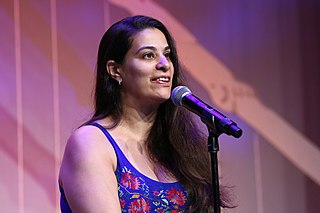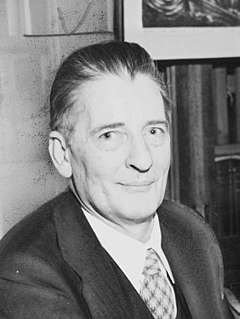A Quote by Robert A. Heinlein
I'm afraid of coaching, of writer's classes, of writer's magazines, of books on how to write. They give me centipede trouble - you know the yarn about the centipede who was asked how he managed all his feet? He tried to answer, stopped to think about it, and was never able to walk another step.
Related Quotes
I never learned to be a writer. I never took screenwriting courses. I never read anyone's scripts. As a writer, my only guiding principle has been to write about things that scare me, write about things that make me feel vulnerable, write about things that will expose my deepest fears, so that's how I write.
Sometimes kids ask how I've been able to write so many books. The answer is simple: one word at a time. Which is another good lesson, I think. You don't have to do everything at once. You don't have to know how every story is going to end. You just have to take that next step, look for that next idea, write that next word.
I say "on principle" [regarding 'lesbian writer'] because whenever you get one of your minority labels applied, like "Irish Writer," "Canadian Writer," "Woman Writer," "Lesbian Writer" - any of those categories - you always slightly wince because you're afraid that people will think that means you're only going to write about Canada or Ireland, you know.
One of the most useful parts of my education as a writer was the practice of reading a writer straight through - every book the writer published, in chronological order, to see how the writer changed over time, and to see how the writer's idea of his or her project changed over time, and to see all the writer tried and accomplished or failed to accomplish.
When asked how she knows when her writing is where she wants it to be: "I know when it's the best I can do. It may not be the best there is. Another writer may do it much better. But I know when it's the best I can do. I know that one of the great arts that the writer develops is the art of saying, 'No. No, I'm finished. Bye.' And leaving it alone. I will not write it into the ground. I will not write the life out of it. I won't do that."
What gives a wriggle And makes you giggle When you eat'em? Whose weensy little feet Make my heart really beat? Why, it's those little creepy crawlies That make me feel so jolly. For the darling centipede My favorite buggy feed I always want some more. That's the insect I adore More than beetles, more than crickets, Which at times gives me the hiccups. I crave only to feed On a juicy centipede And I shall be happy forevermore." -Soren
Yes?’ he asked, looking at me over the sheet. ‘I’m a writer temporarily down on my inspirations.’ ‘Oh, a writer, eh?’ ‘Yes.’ ‘Are you sure?’ ‘No, I’m not.’ ‘What do you write?’ ‘Short stories mostly. And I’m halfway through a novel.’ ‘A novel, eh?’ ‘Yes.’ ‘What’s the name of it?’ ‘”The Leaky Faucet of My Doom.”‘ ‘Oh, I like that. What’s it about?’ ‘Everything.’ ‘Everything? You mean, for instance, it’s about cancer?’ ‘Yes.’ ‘How about my wife?’ ‘She’s in there too.
Of course you want someone special to love you. A majority of the people who write to me inquire about how they can get the same thing... Unique as every letter is, the point each writer reaches is the same: I want love and I'm afraid I'll never get it. It's hard to answer those letters because I'm an advice columnist, not a fortune-teller. I have words instead of a crystal ball. I can't say when you'll get love or how you'll find it or even promise that you will. I can only say you are worthy of it and that it's never too much to ask for it.
Anybody can find out if he is a writer. If he were a writer, when he tried to write of some particular day, he would find in the effort that he could recall exactly how the light fell and how the temperature felt, and all the quality of it. Most people cannot do it. If they can do it, they may never be successful in a pecuniary sense, but that ability is at the bottom of writing, I am sure.
A writer, or at least a poet, is always being asked by people who should know better: “Whom do you write for?” The question is, of course, a silly one, but I can give it a silly answer. Occasionally I come across a book which I feel has been written especially for me and for me only. Like a jealous lover I don’t want anybody else to hear of it. To have a million such readers, unaware of each other’s existence, to be read with passion and never talked about, is the daydream, surely, of every author.
I think reading is a gift. It was a gift that was given to me as a child by many people, and now as an adult and a writer, I'm trying to give a little of it back to others. It's one of the greatest pleasures I know." Ann M. Martin
"Never write anything that does not give you great pleasure. Emotion is easily transferred from the writer to the reader.






































